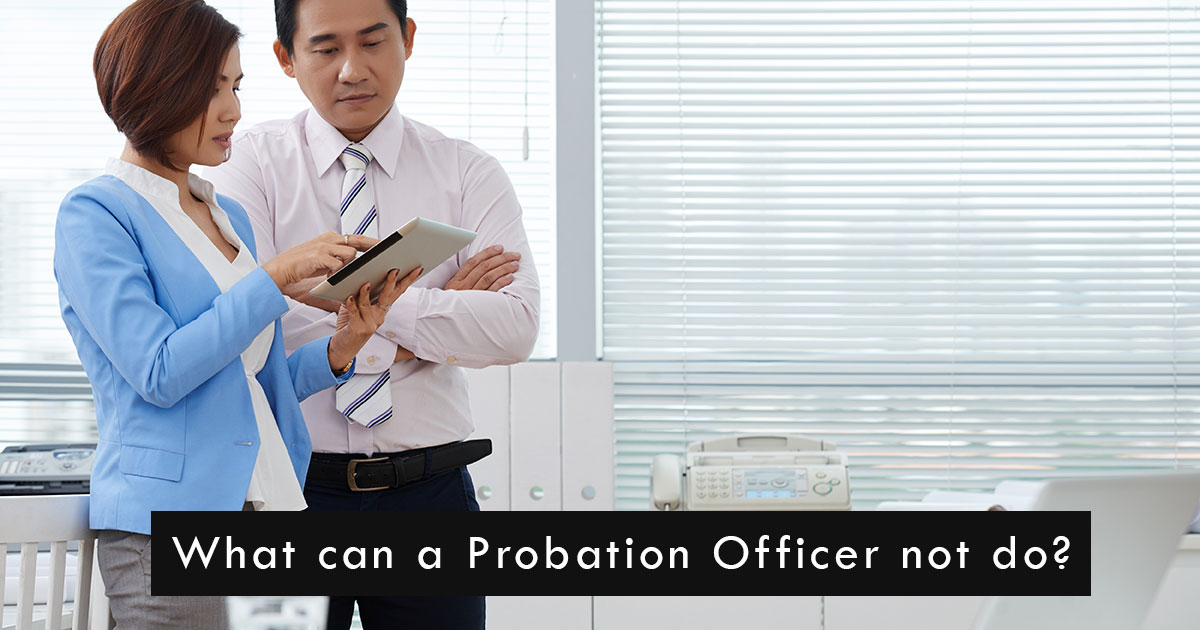Probation officers play a critical role in the criminal justice system, supervising individuals who have been sentenced to probation. While they have significant responsibilities, there are clear boundaries and actions that probation officers are not allowed to engage in.
Here are some of the key limitations on what probation officers cannot do
Personal Relationships and Conduct
Probation officers cannot develop personal relationships with probationers, meet with them outside of official probation meetings, or make any verbal or physical sexual advancements. Engaging in inappropriate relationships or misconduct is strictly prohibited.
Arrest and Law Enforcement Powers
The ability of probation officers to make arrests varies by state. In some jurisdictions, probation officers are unarmed and do not have arrest powers, while in others, they may be armed and authorized to make arrests. However, they generally cannot act as full-fledged law enforcement officers, such as making arrests for new crimes or conducting investigations outside their assigned cases.
Searches and Seizures
Probation officers can search a probationer’s property without a warrant or probable cause, but based on reasonable suspicion alone. This is because probationers have a reduced expectation of privacy. However, searches must be related to the probation conditions and cannot infringe on the rights of others living in the same household.
Medical and Legal Advice
Probation officers are not qualified to practice medicine, provide therapy, or offer legal advice. They can provide information and referrals but cannot replace professional medical or legal counsel.
Discrimination and Bias
Probation officers must treat all individuals fairly and without discrimination. They cannot show bias based on factors such as race, gender, religion, or any other protected characteristic.
Violation of Constitutional Rights
Probation officers cannot infringe upon an individual’s constitutional rights. This includes rights like being free from unreasonable searches and seizures, the right to remain silent, and the right to an attorney.
Imposing Unauthorized Conditions
Probation officers must adhere to the conditions set by the court and cannot impose additional conditions or requirements that are not approved by the court.
Abuse of Power
Probation officers must operate within the limits of their authority and cannot use excessive force or coercion, threaten, intimidate, or use their position to mistreat or harass probationers.
Understanding these limitations is crucial for maintaining the integrity of the criminal justice system and ensuring that the rights of individuals on probation are respected. Probation officers are tasked with a delicate balance of enforcing legal requirements while supporting the rehabilitation and reintegration of probationers into society.
Probation Officer FAQs
Can a probation officer make an arrest?
The ability of probation officers to make arrests varies by state and is typically limited to probation violations, not new crimes.
Are probation officers allowed to conduct warrantless searches?
Yes, probation officers can conduct warrantless searches of a probationer’s property based on reasonable suspicion.
Can a probation officer provide legal advice?
No, probation officers cannot offer legal advice as they are not licensed attorneys.
Can probation officers discriminate against probationers based on race or gender?
No, probation officers are required to treat all individuals without discrimination based on race, gender, or other protected characteristics.
What happens if a probation officer violates a probationer’s rights?
Violations of a probationer’s rights by a probation officer can lead to legal repercussions and disciplinary action against the officer.









Leave a Reply